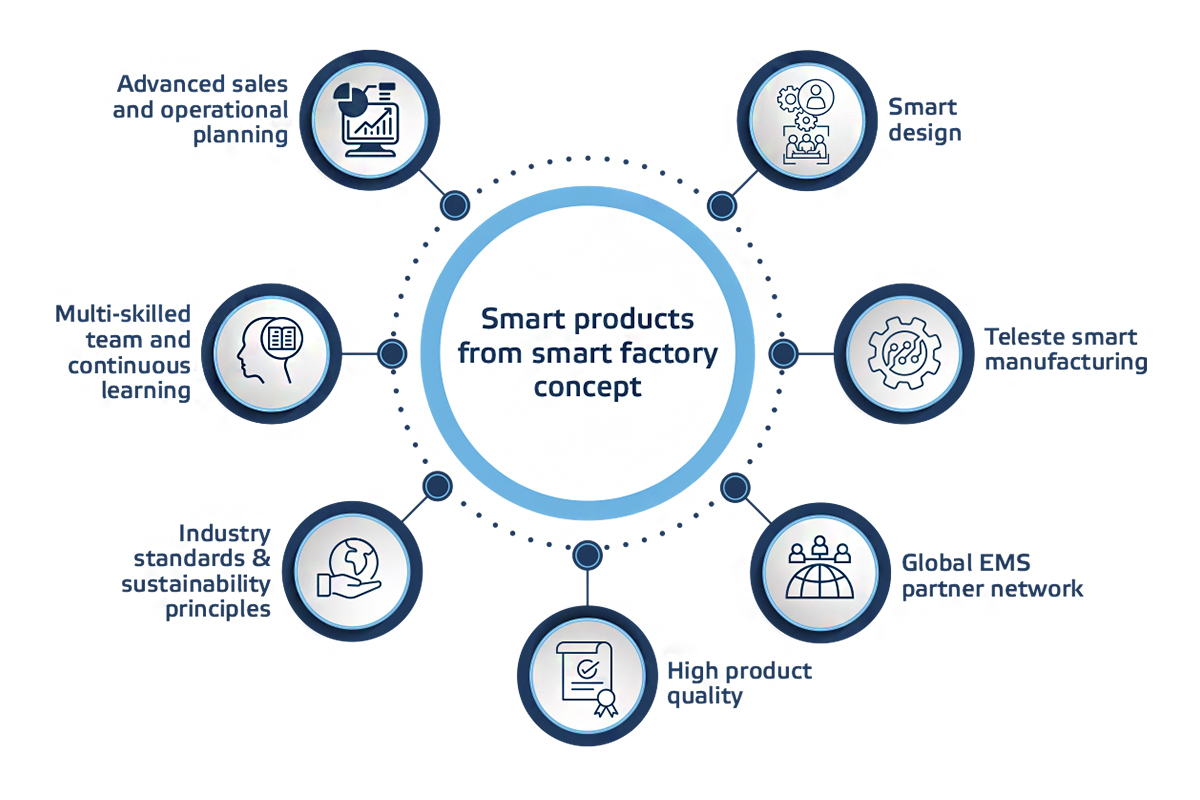Smart factories are taking over and revolutionizing manufacturing. It is impressive to see how visible changes in the network and the products are accompanied by less visible changes that have taken place in the way we manufacture products.
I have been in the CATV industry for more than 25 years and the changes we are seeing today are more dramatic than any other time in my career. The 10G strategy with DOCSIS 4.0 is ramping up now and will continue to transform the industry. As most people are aware, the DOCSIS 4.0 standard includes upgrading many networks with new nodes, amplifiers, and taps to increase the network capability to support 10G initiatives. However, what’s even more impressive than the visible changes in the network and the products, are some of the less visible changes that have taken place in the way we manufacture products.
The era of original equipment manufacturers (OEMs) chasing cheap labor and low production costs in third-world countries, where workers sit shoulder-to-shoulder for 10-hour shifts manually tuning amplifiers, is gradually coming to a close. Instead, smart factories are taking over. This means that the same intelligence that is utilized to make, for example, intelligent broadband amplifiers can be applied to automate their manufacturing, testing, and tuning processes. At Teleste we have seen for many years how adopting this approach not only results in smarter products for our customers but also improves quality control and reduces costs.
How has the smart manufacturing transformed the way we make products? At its foundation lies a product that incorporates electronically controlled settings, which can be modified locally, remotely, or autonomously via microprocessors. It’s important to note that this is not the same as electronically controlled banks of attenuators and equalizers that are switched in and out of the signal path using RF switches. Rather, this involves digitally controlled micro circuits that can be adjusted without signal interruption.
This technology is incorporated in our products to automate setup with a single button push, control output level and slope with closed loop feedback, and reduce power consumption by adjusting bias current to match RF spectrum, just to name a few. In our manufacturing processes, the same technology is employed to automate testing and tuning. Our unique manufacturing cells utilize industry standard equipment, which is controlled using proprietary software developed specifically for this purpose by Teleste. This approach enables us to create a highly scalable manufacturing cell that can be replicated quickly, transported globally, and utilized easily in both our own factories and those of our partners.
Teleste Smart manufacturing -concept
In addition to the automated manufacturing cell, Teleste has established a support organization that includes co-located R&D engineering at the main Finland factory. This allows us to rapidly address any manufacturing issues, including supply chain disruptions that necessitate component substitution or component yield problems that require analysis. By retaining core knowledge about our products and technologies from the design phase onward, we can seamlessly run manufacturing and development processes in parallel and provide post-development support for any manufacturing issues that arise.
As I look to the future, I am convinced that the manufacturing industry is on the brink of a major transformation that will fundamentally reshape the way products are manufactured. Leading vendors in their industries, such as Teleste, have already recognized the transformative potential of smart manufacturing technologies and are at the forefront of this revolution. By embracing digital innovations based on artificial intelligence, machine learning, and the IoT, we are driving efficiency, creating new solutions, and ultimately delivering better products and services to cable MSOs and the subscribers.
About the author
Steve Condra, Director, Engineering and Product Management of Teleste Intercept
Steve Condra has more than 30 years of experience in the Telecommunication industry. He spent 16 years with AT&T, Bell Labs, and Lucent Technologies primarily in outside plant design, manufacture, and installation. In addition, he spent 18 years in the Cable TV industry with Scientific Atlanta, Cisco, and Teleste primarily in HFC infrastructure including R&D and Product Management. Steve earned a Bachelor’s and Master’s degree in Mechanical Engineering from the University of Missouri.







